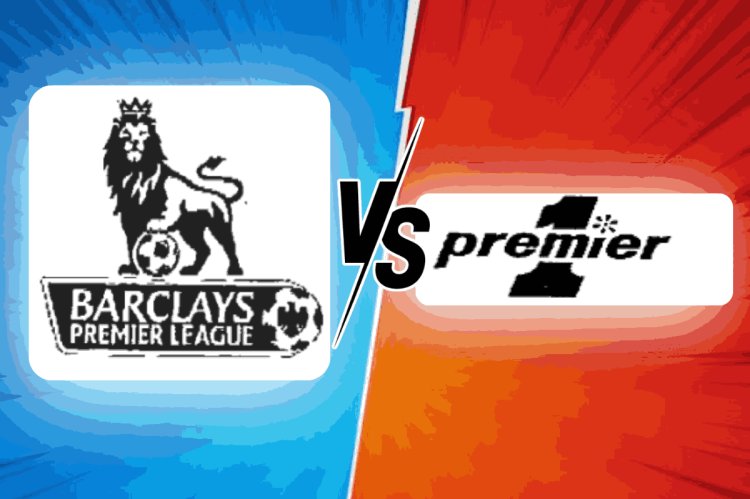Premier SPG and WVG Mills (P) Ltd. v. Football Association Premier League Ltd.
The case revolves around a trademark dispute between the Appellant, a manufacturer and marketer of textile products under the mark 'PREMIER', and the Respondent, responsible for the widely known 'Barclays Premier League'. The dispute arose when the Respondent applied for registration of the mark 'BARCLAYS PREMIER LEAGUE' in India. The Appellant opposed, claiming similarity between their mark and the Respondent's. However, the court ruled in favor of the Respondent, emphasizing the visual differences and contextual uniqueness of the marks, and dismissing the appeal due to lack of opposition and absence of deceptive similarity.

Premier SPG and WVG Mills (P) Ltd. v. Football Association Premier League Ltd.
C.A.(COMM.IPD-TM) 15 of 2023,
Decided on 22-01-2024
Brief Facts
In this case, Respondent 1 submitted an application for registration of a particular mark, claiming that it was "proposed to be used". However, the application was opposed by the appellant on September 7, 2015, on the grounds that the mark in question was phonetically, visually, structurally, and deceptively similar to its own mark, which was registered under the name 'PREMIER'. Notably, the appellant had conceived, coined, and adopted this mark way back in 1949, and it had been registered in various classes since 1980. The appellant was a manufacturer, exporter, and marketer of a range of textile products such as yarn, clothing, hosiery, suiting, shirts, ready-made garments, dhotis, and textiles, which were sold under various marks. Of these, the marks were house marks of the appellant, and as such, the appellant was of the view that the respondent's mark was infringing on its own intellectual property.
Appellant Arguments
According to the Appellant, the Registrar of Trade Marks made a mistake by concluding that there was no similarity between the two marks in terms of phonetics, visuals, or structure. The Appellant argued that the only common feature between the marks was the word 'PREMIER', which is a generic word that cannot be monopolized or claimed exclusively by anyone.
Respondent Arguments
Respondent 1 has asserted that they are the governing body responsible for overseeing the operations of the widely known 'Barclays Premier League'. They claim to exercise complete control over the League's rights, including those related to broadcasting, commercial activity, and regulation of the League. In India, the Respondent has registered the 'BARCLAYS PREMIER LEAGUE' trademark, which was publicized in a Journal dated 13-09-2010. Following an agreement with Barclays Bank, which was the previous sponsor of the League, the Respondent has continued to use their distinctive mark 'PREMIER LEAGUE' without the word 'BARCLAYS'. This mark is highly stylized and continues to be unique and differentiated from other marks.
Court Judgement
The court has given its opinion that, at first glance, there is no deceptive similarity between the two marks in question, and the only similarity is the use of the word “PREMIER”. The respondent’s mark contains the word “PREMIER” suffixed by the word “LEAGUE” and an image of a lion wearing a crown and standing over a football, which is indicative of the respondent’s services in the football industry. In contrast, the appellant’s mark uses a different font and style for the word “PREMIER”, and it has a small flower device on top of the word. Therefore, the court concluded that there is no deceptive similarity between the two marks.
The court relied on a previous case, Vasundhara Jewellers (P) Ltd. v. Kirat Vinodbhai Jadvani, 2022 SCC Online Del 3370, which stated that the dominant part of a trademark should be examined to determine whether the marks are deceptively similar when viewed as a whole. The court applied the rule of anti-dissection to the two composite device marks being compared, stating that the device mark of the respondent cannot be dissected to pluck out the word “PREMIER” and compared with the appellant’s registered mark.
The court also noted that the appellant’s mark is only a device mark and not a word mark, so the appellant cannot have a monopoly over the word “PREMIER” since it is a word of general use. The court also concluded that the respondent’s mark could not be severed from its associated word “LEAGUE” since it derived its context from it. “PREMIER” referred to the category of a league, which in the context of football had acquired worldwide recognition, goodwill, and immediate recall.
The court relied on another case, Pidilite Industries Ltd. v. Vilas Nemichand Jain, 2015 SCC Online Bom 4801, and stated that mere evidence of invoices, financial figures, and sales was not enough to show distinctiveness, but what needed to be achieved was that the mark had acquired secondary meaning and displaced the primary descriptive meaning of the mark.
The court observed that the selling of sports merchandise had become a standard industry practice for premium sports brands, and it is normal for them to protect the same. The greater the reputation and goodwill that the sporting event had, the greater the fan craving for the merchandise.
Finally, the court dismissed the appeal, as there was a lack of opposition by the appellant to the earlier registration of the respondent’s mark “BARCLAYS PREMIER LEAGUE”. If the appellant had sought distinctiveness based on the word “PREMIER”, an opposition ought to have been filed at that stage itself. The mark of “BARCLAYS PREMIER LEAGUE” had subsisted on the trademark register for at least 10 years, and the appellant had not taken any steps for opposition/rectification.
Judgement Analysis:
The court concluded that there was no deceptive similarity between the marks, emphasizing the visual elements and contextual differences. The appellant's mark being a device mark, did not give them exclusive rights over the word "PREMIER". The court stressed the importance of establishing distinctiveness through secondary meaning. The court dismissed the appeal due to the lack of opposition and no deceptive similarity between the marks.












